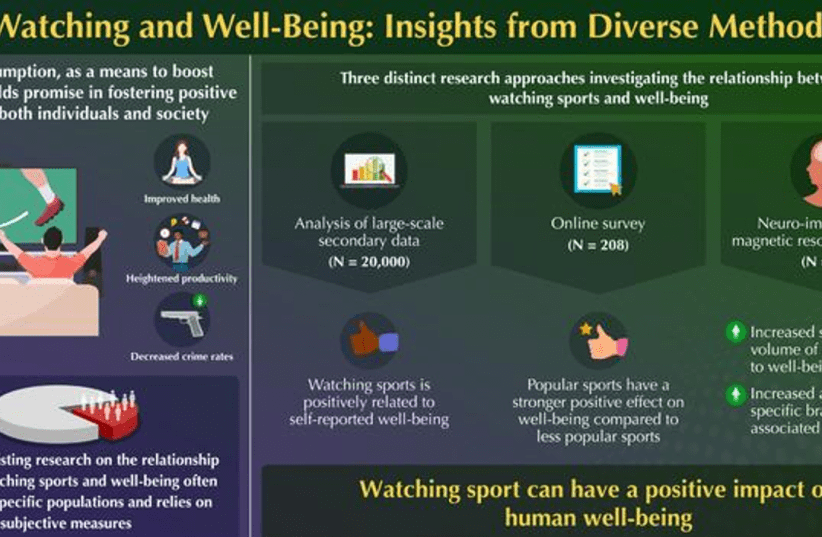If sitting in a stadium and watching soccer and other sports doesn’t lead to verbal and even physical violence between opposing teams, sports can serve as a source of enjoyment and relaxation. Observing games, especially among large crowds, goes beyond entertainment. It fosters a sense of community and belonging among audiences.
This sense of connection not only makes individuals feel good but also benefits society by improving health, enhancing productivity, and reducing crime. Although it is popularly recognized for its positive effects, existing studies on the relationship between watching sports and well-being offer only limited evidence.
Recognizing this gap, a team of researchers led by sports sciences Prof. Shintaro Sato of Waseda University in Japan embarked on a groundbreaking study that they have just published in the journal Sports Management Review titled “Watching sport enhances well-being: evidence from a multi-method approach.”
The team used a multi-method approach, combining secondary data analysis, self-reports, and neuroimaging measures to understand the connection between sports viewing and well-being in the general population. “A significant challenge in well-being research is the subjective nature of measurement procedures, potentially leading to biased findings. Therefore, our studies focused on both subjective and objective measures of well-being,” Sato explained.
In their first study, the researchers analyzed large-scale publicly available data on the influence of watching sports on 20,000 Japanese residents. The results confirmed the ongoing pattern of elevated reported well-being associated with regular sports viewing. However, this study was limited by its inability to provide deeper insight into the relationship between sports consumption and well-being.
Sports viewing and brain rewards
The second study – an online survey aimed at investigating whether the connection between sports viewing and well-being varied depending on the type of sport observed – encompassed 208 participants. The experiment exposed them to various sports videos, assessing their well-being both before and after viewing. The findings underscored that widely embraced sports, like baseball, exerted a more significant impact on enhancing well-being compared to less popular sports, such as golf.
However, the most groundbreaking aspect of this research emerged in the third study, in which the team employed neuroimaging techniques to scrutinize alterations in brain activity following sports viewing. Using multimodal MRI neuroimaging measurement procedures, the brain activity of 14 able-bodied Japanese participants was analyzed while they watched sports clips.
The results showed that sports viewing triggered activation in the brain's reward circuits, indicative of feelings of happiness or pleasure, and people said they watched sports more frequently showed greater gray matter volume in regions associated with reward circuits, suggesting that regular sports viewing may gradually induce changes in brain structures.
“Both subjective and objective measures of well-being were found to be positively influenced by engaging in sports viewing. By inducing structural changes in the brain's reward system over time, it fosters long-term benefits for individuals. For those seeking to enhance their overall well-being, regularly watching sports, particularly popular ones such as baseball or soccer, can serve as an effective remedy,” Sato commented.
The authors wrote that their work has “profound implications and theoretical contributions to sports management literature. Existing literature has primarily focused on sports fans, but this study has taken into consideration a larger general population irrespective of their relationship to sports consumption and can contribute significantly to sports management practices and policymaking for public health.”

